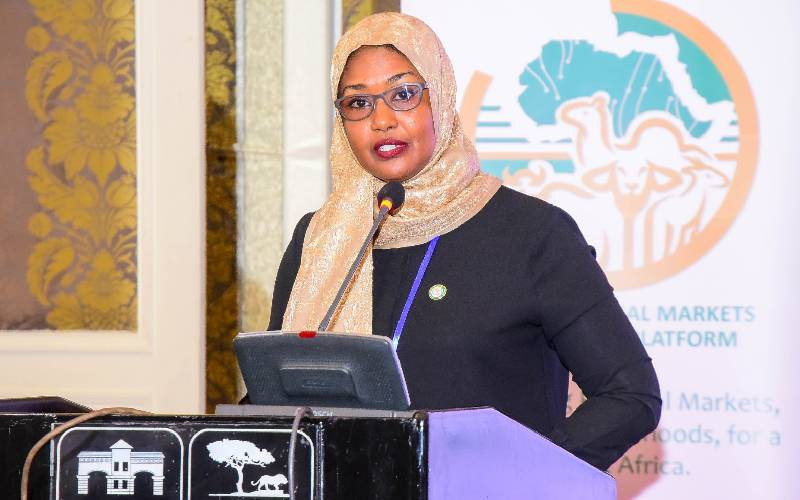
The meat sector where pastoralism is the primary source of supply is still lagging behind when it comes to value addition despite its economic contribution in the country.
This comes at a time when a collaboration among government agencies, industry stakeholders, and development partners is set to address the ongoing challenges within the pastoral livestock development and marketing subsector.
Despite its significance as a vital source of livelihood for millions of people, the sector continues to face obstacles such as trade barriers, inadequate infrastructure and limited market access.
Speaking during the official launch and stakeholder’s inception workshop for the African Pastoral Markets Development (APMD) Platform in Nairobi, Agriculture Principal Secretary Jonathan Mueke, highlighted the sector's underperformance, particularly in meat production.
"Kenya has a substantial livestock population. Estimates for the year 2021 showed that beef cattle were 16,182,356, sheep 24,801,605; goats 32,570,314 and camel 4,427,881, producing a combined 500,000 MT of red meat in the year 2021 which is significantly low output compared to resource base," said Mueke in a speech read on his behalf by the State Department of Livestock Deputy Director in the Agri-Business Division, John Chege.
Chege said that there was need for multi-sectoral partnerships to overcome these barriers and to boost the sector's contributions to economic growth, food security, and cultural sustainability.
He also pointed out Kenya’s leadership in livestock development through initiatives such as the Malabo Declaration of 2014, which paved the way for several programs still faced challenges in market integration, policy frameworks, and information sharing which continued to persist.
Experts at the event emphasized the urgency of finding innovative and adaptive solutions. Dr Huyam Salih, Director of the African Union - Inter-African Bureau for Animal Resources (AU-IBAR), noted that existing pastoral frameworks and adaptation plans often fail to address the specific needs of pastoral communities.
"The importance of the pastoral sector cannot be overstated. Across the continent, millions of livelihoods depend on pastoralism, a sector that contributes significantly to national economies, regional trade, and food security. Yet, this sector faces persistent challenges, including limited access to formal markets, inadequate value addition, and insufficient integration of pastoral communities into broader economic frameworks. Climate change further exacerbates these vulnerabilities, necessitating a more coordinated, resilient, and innovative response," she said.
To address this gap, AU-IBAR, in partnership with the Bill & Melinda Gates Foundation, developed the APMD Platform. This transformative initiative leverages data-driven approaches to solve key pastoral challenges.
Dr.Yoseph Mamo of the Common Market for Eastern and Southern Africa (Comesa) underscored the importance of accurate, accessible data in driving sustainable policy decisions and fostering meaningful development.
Similarly, Winnie Lai-Solarin, Director of Animal Husbandry Services in Nigeria’s Federal Ministry of Agriculture, called on regional governments to establish dedicated ministries and departments for livestock development and marketing.
Lai-Solarin argued that such institutions would enhance coordination, improve productivity, and facilitate better policy implementation across the sector.
The APMD Platform, set to launch on Friday in Nairobi, will focus on the Horn of Africa and Sahel regions. Its mission is to transform pastoral market ecosystems, improve livelihoods, and build the resilience of pastoral communities by implementing sustainable and innovative solutions.
Stay informed. Subscribe to our newsletter
Tumal Orto, a camel pastoralist and community leader from the Gabra indigenous group in Marsabit County, shared the challenges faced by pastoralists, including inadequate market access, the effects of climate change, and limited resources.
Orto was optimistic that the APMD Platform would provide data-driven solutions to improve market linkages, boost livestock productivity, and strengthen resilience in pastoral communities.
The Stakeholder Inception Workshop has brought together key players in the livestock value chain, including representatives from countries such as Kenya and Nigeria, African Union bodies, regional economic communities like Comesa, Igad, ECCAS, and Ecowas, along with development partners and research institutions.